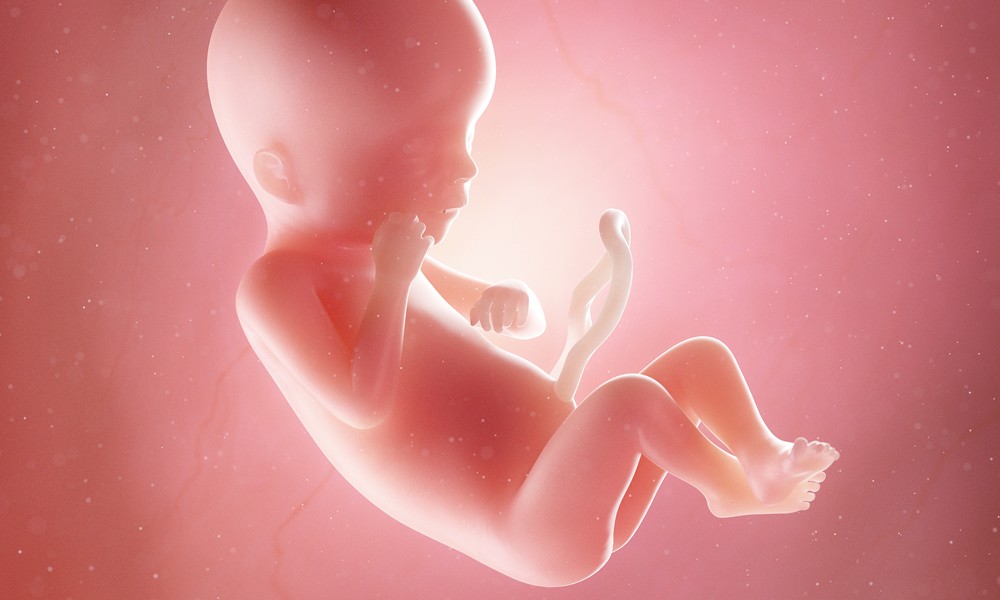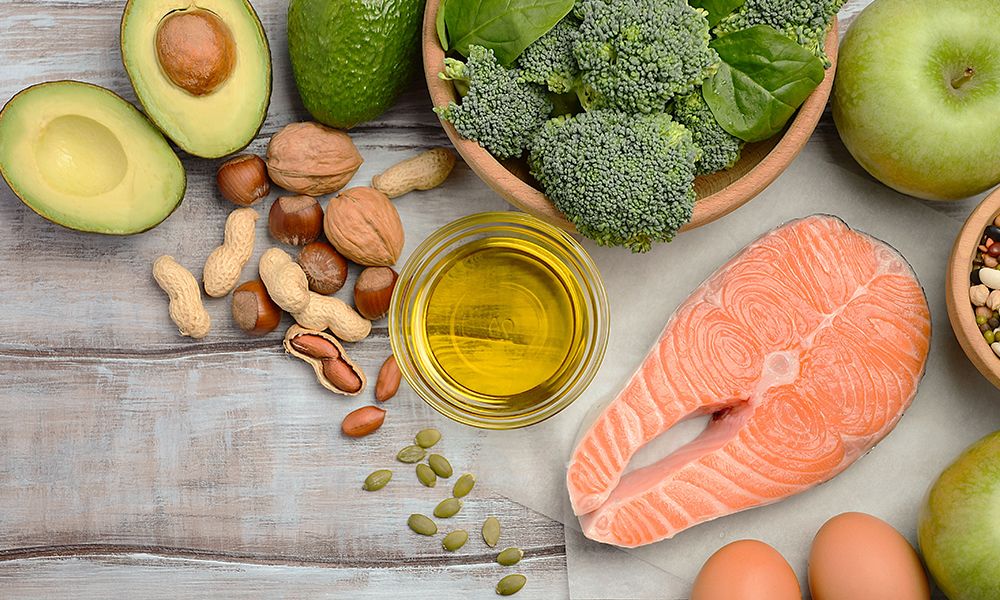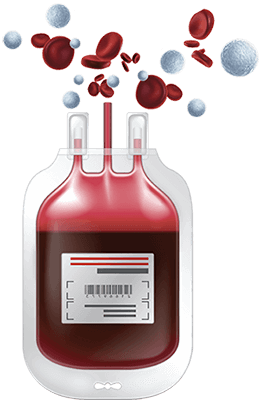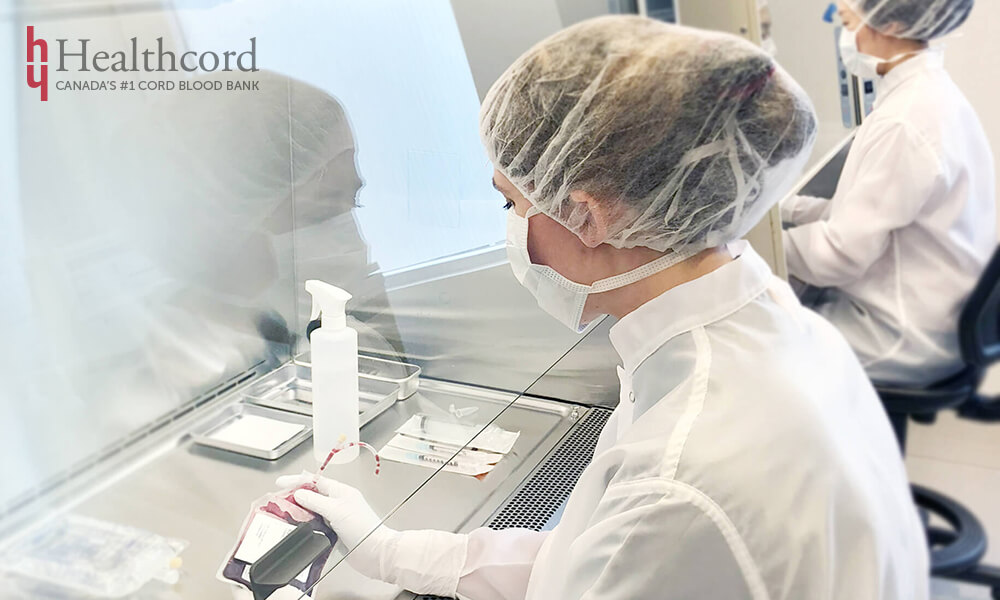Canada's Largest & Oldest Cord Blood Bank
Great job! You are almost at the halfway point of your pregnancy.
This Week’s Highlights
Your baby is now covered in a cheesy varnish (vernix)
Your baby’s reproductive system is growing
You may be able to find out the gender of your baby
Your Baby at 19 Weeks
Your baby is the size of an heirloom tomato, measuring about 6 inches (15.3 centimeters) from head to rump and weighing in at about 8.5 ounces (240 grams).
Baby Development at Week 19
Your baby’s body is now in proportion, including the arms and legs. In your little ones brain, the areas responsible for each of the five senses, smell, taste, hearing, vision and touch are starting to become specialized.

At this point, your baby is still covered in a protective substance called vernix caseosa (vernix for short). This waxy layer is made up of fine hairs called languo, oils and dead skin cells. It protects your baby’s skin from the amniotic fluid, so he or she doesn’t look like they have been in the bath for 9 months. Vernix usually disappears just before your baby is born. However, you may have seen videos of pre term babies who are still covered with it.
If you haven’t already, you will notice the flutters caused by your baby’s movements this week. If this is your first baby, or if the placenta is located on the outside (anterior placenta), you may not be able to feel your baby move just yet. Remember, every pregnancy is different, so be patient and you will be rewarded.
You may have your anatomy scan (the second ultrasound) booked this week. The ultrasound technician will be taking measurements of your baby’s organs, head, arms, legs and heart, to keep track of his or her development. This is also the time to find out your baby’s gender, if you choose to do so.
Don’t forget to ask for a print out of your scans for your baby diary.

Pregancy Tip
Pregnancy can cause nasal congestion and make you snore at night. If this is disrupting your partners sleep, you may want to consider alternate sleeping arrangements. You want your partner to be well rested before the baby comes.

Your Bump at 19 Weeks
At this point of your pregnancy, the top of your uterus is probably at your belly button. From now on, your uterus will continue to grow about a centimeter a week (yikes!).
Cord Blood vs Cord Tissue Stem Cells
Cord blood is the blood remaining in the umbilical cord and placenta after birth. It contains rare stem cells that have many potential medical applications.
We have put together a fantastic webinar that will introduce you to cord blood and everything you need to know about it.
How Your Body is Changing
Many of your new pregnancy symptoms will be associated with the growing belly. Round ligament pain and back pain may become more recurrent and noticeable. Rest is usually the best remedy for these aches and pains.
Some expectant moms also start experiencing leg cramps in their calves. Unfortunately, you will notice the cramping more at night, which will disturb sleep. The exact cause behind leg cramps is not clear. It may be dehydration, changes in circulation or even fatigue. Prenatal yoga may help with leg cramps. You can also enlist your partner to give you a calf massage.
Getting good sleep at night is crucial at this time in pregnancy. Being active during the day can help you fall asleep faster. Extra pillows, especially a pillow that can support the weight of you belly, can also be helpful. If you tend to wake up hungry in the middle of the night, consider having a quick snack ready to go on your bedside table.
How Far Along are You?
19 weeks in, 21 weeks to go! You are just a week away from the halfway point in your pregnancy. Even though pregnancy is measured in weeks this means you are going into the fifth month of pregnancy.
Diet at Week 19
Your baby’s organs are developing and maturing very fast at this stage, which is why it’s important that your diet has a a good supply of calcium, vitamin D and omega-3.
- Omega-3 – Try to include two portions of oily fish such as salmon, mackerel, or sardine in your diet every week to give your baby the omega-3 necessary for his or her brain and eye development.
- Vitamin D and Calcium – These nutrients are essential for the health of both the mom and the baby. Your body needs calcium to maintain muscle contractions, to send out nerve impulses and to keep your bones and teeth healthy. Your baby needs these nutrients to grow healthy bones and teeth.

Exercise at Week 19
You have probably put on anywhere between 8 to 14 pounds (3.6 to 6.4 kilograms) by now. The key to a healthy pregnancy is slow and gradual weight gain. Regular exercise can help you achieve this.
Exercise can help you tackle your anxiety about gaining weight, and fight off those pregnancy blues. Studies show that moms who exercise tend to be more positive during their pregnancy.
Stretching and strengthening your muscles will help with the aches and pains you experience. Exercise will also make your sleep more relaxing and restful.
Pregnancy Symptoms at Week 19
Round ligament pain – Several thick ligaments support your growing belly. The round ligament joins the front of your uterus to your groin area. As your belly grows, this ligament gets stretched. When there’s pressure on the round ligament you may notice pain. The pain can be sharp or it may be a dull aching pain that originates from one or both sides of your abdomen. You may feel like you have a sore stomach. You may want to wear a belly band and avoid the sudden movements that initially caused ligament pain.
Faintness and dizziness – These symptoms mostly occur in the second trimester and may be due to several different factors including changes in circulation, pregnancy hormone levels and your growing bump. You are sharing your blood supply with the baby, which means sometimes your brain may not get enough oxygen to support your body. Make sure you don’t spend too much time in hot, stuffy rooms and aren’t letting your blood sugar levels drop too low.
Stuffed up sinuses – You may notice that your nose is more congested, making it feel like you have allergies or a cold. About 65% of expectant moms experience sinus congestion, and the hormone progesterone is behind it. Increasing the blood supply to the mucus membrane of the nose causes them to swell, leading to irritation and inflammation.
Dry, itchy skin – As your belly and breasts grow, the stretching skin can often cause itchiness. Staying hydrated and applying moisturizer can help minimize the dryness and the itchiness.
Headaches – Changing hormone levels are the main culprit behind your pregnancy headaches. Fatigue, stress, overeating, allergies and a drop in blood sugar levels can also lead to headaches. Remember to get lots of fresh air and stay cool by wearing comfortable clothing.
Latest Advances in Cord Blood & Cord Tissue Banking Technologies
To provide the best service for you and your family, you should select a cord blood bank with a commitment to adopting the latest advances in cord tissue banking technologies.
Stem cell banking involves collecting, processing and cryogenically preserving newborn stem cells for long-term storage. At Healthcord, we stay on the cutting edge to deliver a world class cord blood banking experience. Learn more: https://www.healthcord.com/about/healthcord-advantage/



